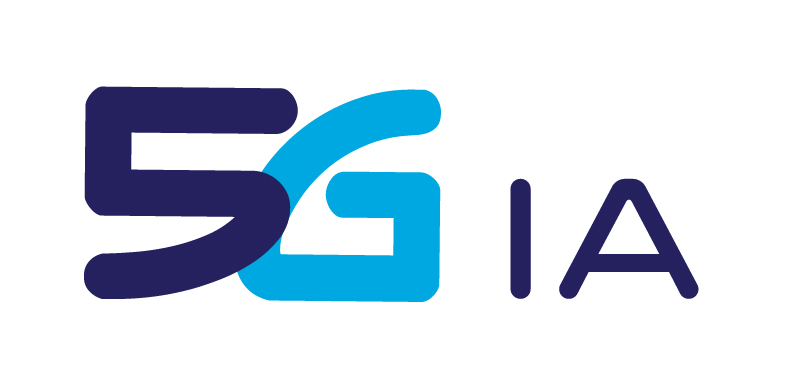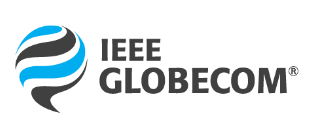

- About us
- Getting Involved
- Plans & Papers
- Events
- European 5G Activities
- Media & News
- Contact
CfP 2023 IEEE Globecom: The path towards 6G: Standardization and Research Vision Workshop, co-sponsored by the 6G SNS JU HORSE and 6Green projects, PNRR RESTART and 6G-IA
CfP 2023 IEEE Globecom: The path towards 6G: Standardization and Research Vision Workshop, co-sponsored by the 6G SNS JU HORSE and 6Green projects, PNRR RESTART and 6G-IA
 5G is still on its way being deployed across the world, but it is already the time for academia and industry to shift their attention to beyond 5G or the sixth generation (6G) systems, in order to satisfy the future demands for information and communications technology (ICT) in 2030. Indeed, the main drivers towards 6G are on three drivers: i) the explosive growth of mobile traffic, ii) disruptive use cases, and iii) novel usage scenarios. In general, 6G is expected to fully exploit the revolutionary concepts introduced by 5G, especially the softwarization and virtualization features of the 5G Service Based Architecture, and enable increased autonomicity, security and adaptation to the service requirements.
5G is still on its way being deployed across the world, but it is already the time for academia and industry to shift their attention to beyond 5G or the sixth generation (6G) systems, in order to satisfy the future demands for information and communications technology (ICT) in 2030. Indeed, the main drivers towards 6G are on three drivers: i) the explosive growth of mobile traffic, ii) disruptive use cases, and iii) novel usage scenarios. In general, 6G is expected to fully exploit the revolutionary concepts introduced by 5G, especially the softwarization and virtualization features of the 5G Service Based Architecture, and enable increased autonomicity, security and adaptation to the service requirements.
The 5G standardization has been progressing at an astonishingly rapid phase, where 3GPP Release 15 and Release 16 set the foundations of the 5G system, while Release 17 provides enhancements and optimizations to enable support for further features and use cases. In parallel to 5G standardization efforts, the 5G Public-Private-Partnership (5G PPP) in the scope of the European Framework for Research and Innovation is currently at its peak with more than 40 projects running concurrently. At the same time, the European networking research community started the Smart Networks and Service programme that focuses on 5G advanced and 6G, supported by the 6G-Industry Association. 6G-IA represents the private side in both the 5G Public Private Partnership (5G-PPP) and the Smart Networks and Services Joint Undertaking (SNS JU). In the 5G-PPP and SNS JU, the European Commission represents the public side. 6G-IA brings together a global industry community of telecoms & digital actors, such as operators, manufacturers, research institutes, universities, verticals, SMEs and ICT associations.
The goal of this workshop is twofold. On the one hand, it will focus on highlighting the key architectural innovations required for future 6G mobile and wireless networks. On the other hand, the latest generation of 6G projects in Europe and other worldwide efforts. Nevertheless, the workshop aims at enabling discussion and identify areas of collaboration among existing ongoing activities worldwide. This will be enabled by providing social networking opportunities through the introduction of poster sessions and panels with related projects.
The topics of interest of the workshop include (but are not limited by):
• AI-driven network management
• AI/ML empowered RAN Intelligent optimization
• Dynamic dependability and high resilience
• Time-sensitive wireless/mobile networks
• High-resolution localisation
• E2E Network Slicing and Deep Slicing to support diverse verticals
• Open Testbeds and facilities to assess new technology enablers
• Network Architecture Evolution from 5G to 6G
• 6G architectural enablers addressing e.g. important KPIs such as energy efficiency
• Industry landscape and Standardization efforts for 6G
• Testbeds/Experimentation to validate or support 6G solutions
• 3GPP and ETSI standardization activities related to 6G
Important dates:
• Paper submission deadline: July 15, 2023 –> SUBMIT NOW: https://edas.info/N31214
• Authors notification deadline: Sept. 1, 2023
• Camera ready due: October 1, 2023
• Workshop website: towards6g.disi.unitn.it – Workshop date: TBD [Dec. 4 or 8, 2023]
Workshop URL: https://globecom2023.ieee-globecom.org/workshop/ws13-path-towards-6g-standardization-and-research-vision
SUBMIT NOW: https://edas.info/N31214
The workshop is technically co-sponsored by the 6G SNS JU HORSE and 6Green projects, PNRR RESTART and 6G-IA.







Share On